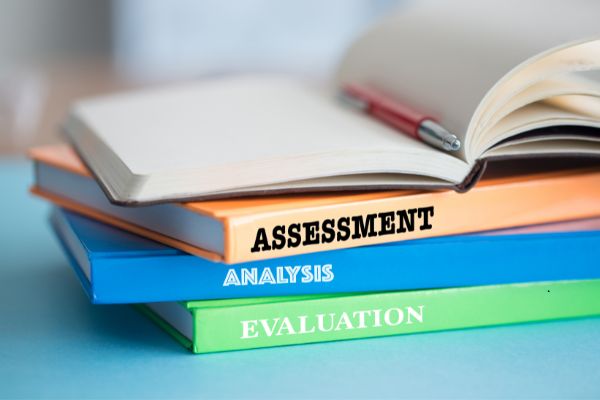Forensic Evaluation Explained: What You Should Know
A forensic evaluation is a comprehensive mental health assessment conducted by licensed psychologists for legal purposes. These evaluations help courts make informed decisions about criminal responsibility, competency to stand trial, sentencing mitigation, psychological damages, and disability claims. Unlike regular therapy sessions, forensic evaluations involve structured interviews, psychological testing, extensive record review, and may result in court testimony.

Understanding Forensic Evaluation
A forensic evaluation is a detailed assessment performed by trained forensic psychologists. These specialists conduct in-depth clinical interviews with individuals involved in legal cases. They carefully review all relevant records, legal documents, supporting evidence, and case history. Professional psychological tests are also administered as part of this comprehensive process.
Courts rely on these evaluations to make informed decisions about important legal matters. Common issues addressed include whether someone is mentally fit to stand trial. They also determine criminal responsibility and assess if juveniles should be tried as adults. Mental health defenses like insanity pleas are evaluated through this process. Risk assessments for future violence and sexual offenses are also conducted according to American Psychological Association standards.
Both adult and juvenile defendants may need these evaluations for various legal reasons. Defense attorneys can request these assessments to support their cases. Courts can also order mandatory evaluations when deemed necessary. These evaluations occur in criminal cases, civil lawsuits, correctional facilities, and law enforcement settings.
The location of these evaluations varies depending on the specific circumstances. Some take place in private psychology offices for convenience and privacy. Others are conducted in state psychiatric hospitals when more intensive assessment is needed.
Additional types of forensic evaluation extend beyond criminal cases. Personal injury assessments determine psychological damage from accidents or incidents. Fitness for duty evaluations ensure professionals can safely perform their jobs. Disability evaluations assess mental health conditions that may limit work capacity. Parental fitness evaluations help courts make custody decisions. Competency to testify assessments determine if witnesses can provide reliable testimony.
Essential Documents Needed for forensic evaluation
Forensic assessments require reviewing various documents, depending on the case. Below are the most commonly requested records for a thorough evaluation.
- Legal documentation: Forms the foundation of most forensic evaluation. Police reports provide detailed accounts of incidents and arrests. Accident reports document the circumstances surrounding injuries or damages. Court orders outline legal requirements and restrictions placed on individuals. Prior arrest and conviction records show patterns of legal involvement. Probation or parole records track compliance with court-ordered supervision. Court transcripts capture exact testimony and legal proceedings. Prison records document behavior and incidents during incarceration periods.
- Medical and psychological records: Reveal crucial health information about the individual. Complete medical records show physical health conditions that may affect behavior. Prior psychological evaluations provide previous professional assessments and diagnoses. Psychiatric hospital records document serious mental health treatment episodes. Therapy summaries outline ongoing mental health care and progress. Substance abuse treatment records show addiction issues and recovery efforts. Psychological test results provide objective measures of mental functioning.
- Personal and social history documents: Paint a complete picture of someone’s life. School records show academic performance and behavioral patterns from childhood. Employment records demonstrate work history and job performance over time. Social services records indicate family problems or child welfare involvement. Personal letters or emails can reveal thoughts, relationships, and communication patterns.
- Specialized records: May be needed depending on the specific case requirements. Military records show service history and any combat-related trauma exposure. Additional substance abuse treatment records provide comprehensive addiction history. Child custody evaluation records show previous family court involvement. Autopsy reports provide medical findings in cases involving death.
Forensic psychologists offer unbiased analysis of psychological factors in legal cases following ethical guidelines established by professional organizations. Accurate assessments rely on clear information and documentation to support strong professional opinions and recommendations.

How Forensic Evaluation Works
Forensic evaluations serve important functions in many different legal situations. Understanding this process helps if you’re involved in legal cases requiring psychological assessment. Knowing what to expect can reduce anxiety and help you prepare properly.
The Complete Evaluation Process
Forensic evaluations involve much more than simple conversations or basic testing. These comprehensive assessments include structured interviews with trained professionals. Multiple psychological tests measure different aspects of mental functioning. Extensive document review provides context and background information. All these elements work together to assess someone’s current psychological condition accurately.
Getting Started With a Referral
Every forensic evaluation begins with a clear purpose and specific questions. Attorneys request evaluations to support their legal arguments and case strategies. Courts order evaluations when judges need expert opinions for sentencing decisions. Other agencies may request assessments for administrative or regulatory purposes. The referring party provides specific questions that need professional answers. Common questions include determining someone’s mental state during alleged criminal activity. Evaluators also assess whether defendants can understand court proceedings and assist attorneys. Some evaluations focus on psychological damage caused by accidents or traumatic events.
Reviewing All Available Records
Forensic psychologists begin their work by carefully examining all available documentation. This thorough review happens before any face-to-face meetings with the individual. Police reports provide detailed accounts of incidents and arrests that led to evaluation. Medical histories reveal physical health conditions that might affect mental functioning. Previous psychological assessments show past diagnoses and treatment recommendations. School records demonstrate academic performance and behavioral patterns throughout childhood. Employment records indicate work history and job performance over time. All these documents provide important context for understanding the person’s background. They also reveal potential areas that need deeper exploration during interviews. This comprehensive review ensures psychologists ask the right questions during evaluations.
Conducting the Structured Interview
The interview represents the heart of the forensic evaluation process. This meeting between the forensic psychologist and the individual follows strict professional guidelines established by the American Psychology-Law Society. The conversation is not casual but follows a structured format designed for legal purposes. Psychologists gather essential information about the person’s personal background and family history. They explore current mental health symptoms and any ongoing psychological concerns. The individual shares their version of events relevant to the legal case. Psychologists ask specific questions about thoughts, feelings, and behaviors during important time periods. They also assess the person’s ability to understand legal proceedings and consequences. These interviews often last several hours and may occur over multiple sessions. Legal standards for these interviews are often referenced through resources like Florida Courts procedural guidelines.
Administering Psychological Tests
Standardized psychological tests provide objective data that extends beyond interview information alone. These scientifically validated tools measure cognitive abilities with precision and accuracy. They assess personality traits that may be relevant to legal questions. Other psychological factors like memory, attention, and decision-making abilities are also evaluated. Tests are carefully selected based on the specific legal questions being addressed. Each test has been researched extensively to ensure reliable and valid results available through resources like PubMed. The testing process typically takes several hours and requires focused attention from participants. Results provide concrete data that supports or challenges information gathered during interviews. These objective measures help create a more complete picture of someone’s psychological functioning. Psychoeducational testing may be incorporated when learning disabilities or academic functioning are relevant to legal questions.
Writing the Comprehensive Report
The report writing phase involves careful analysis of all gathered information and evidence. Forensic psychologists combine interview data, test results, and record reviews into comprehensive assessments. They apply established psychological principles to interpret findings and draw professional conclusions. Expert opinions are formed based on scientific research and clinical experience. The report directly addresses each specific legal question that was asked initially. Psychologists explain complex psychological concepts in language that legal professionals can understand. These reports serve as essential bridges between psychological science and courtroom proceedings. They provide judges and attorneys with expert insights needed for informed legal decisions. Reports must comply with standards set by the Florida Board of Psychology and follow guidelines from the American Board of Forensic Psychology.
Providing Court Testimony
Many forensic evaluations eventually require court testimony from the examining psychologist. Legal proceedings may call psychologists to testify about their findings and professional opinions. They must explain complex psychological concepts in clear terms that judges and juries understand. Cross-examination by opposing attorneys tests the validity and reliability of their conclusions. Expert witnesses present their findings objectively without advocating for either side. They answer questions about their methodology, test results, and professional reasoning. This testimony helps courts make informed decisions based on scientific psychological evidence. The psychologist’s expertise guides legal professionals through complicated mental health issues relevant to cases.
How Long forensic evaluation Take
The timeline for forensic evaluations varies widely based on several important factors. Case complexity significantly affects how long the evaluation process will take. The availability of records and documentation can speed up or slow down assessments. Specific legal requirements may also influence the timeline for completion. Most evaluations require several hours of direct contact with the individual being assessed. These hours are typically spread across multiple sessions to ensure thorough and accurate evaluation.

Different Types of Forensic Evaluation
Forensic evaluations are customized to address specific legal questions and circumstances. Each type of evaluation serves unique purposes within the legal system. Specialized assessments are tailored to meet the particular needs of different cases. Understanding these different types helps explain why evaluation approaches vary significantly.
Mitigation Evaluations for Criminal Cases
Criminal cases often require mitigation evaluations to help courts determine appropriate sentences. These evaluations examine factors that might reduce the severity of punishment. Forensic psychologists investigate mental health conditions like depression, anxiety, or post-traumatic stress disorder. They explore past trauma experiences that may have influenced criminal behavior. Developmental problems during childhood and adolescence are carefully assessed. Intellectual disabilities that affect understanding and decision-making abilities are evaluated. All these factors help courts understand how psychological conditions influenced the defendant’s actions. The evaluation results provide important context for fair and just sentencing decisions. Mental health organizations like the National Alliance on Mental Illness provide resources for understanding these conditions in legal contexts.
Psychological Damage Evaluations for Civil Cases
Civil cases involving personal injury or workplace incidents often include psychological harm assessments. These evaluations determine the extent of emotional and mental damage suffered. Forensic psychologists assess emotional distress caused by traumatic events or accidents. They evaluate post-traumatic stress disorder symptoms and their impact on daily functioning. Other lasting psychological effects like depression, anxiety, or phobias are examined. The evaluation process includes measuring how psychological injuries affect work performance and relationships. These findings help courts determine appropriate compensation amounts for psychological suffering. Clinical psychological evaluations often serve as the foundation for understanding these complex psychological impacts.
Independent Medical Examinations
Disability claims, workers’ compensation cases, and insurance disputes frequently require independent medical examinations. These evaluations provide objective assessments of an individual’s injuries and resulting limitations. Forensic psychologists determine the extent of psychological impairments that affect daily functioning. They assess treatment needs and recommend appropriate therapeutic interventions. The evaluation process examines how mental health conditions impact work capacity and performance. These independent assessments help resolve disputes between injured parties and insurance companies. Results provide unbiased professional opinions about psychological disability claims and compensation requirements. Neuropsychological evaluations are particularly valuable when cognitive impairments are suspected. Additional support for understanding mental health impacts can be found through Mental Health America resources.
Citizenship Examination Waivers
The path to United States citizenship requires demonstrating English language proficiency and civics knowledge. However, cognitive impairments or serious mental health conditions can create significant barriers. Forensic psychologists evaluate immigrants’ ability to understand and participate in naturalization proceedings. They assess whether cognitive limitations prevent comprehension of citizenship requirements and responsibilities. Mental health conditions that interfere with learning or memory are carefully examined. The evaluation determines if psychological impairments justify waiving standard testing requirements. These assessments help ensure that mental health conditions don’t unfairly prevent deserving individuals from achieving citizenship. Immigration evaluations require specialized expertise in cross-cultural assessment and immigration law, following guidelines established by the U.S. Department of Justice.
Conclusion
Forensic evaluations serve as crucial bridges between mental health science and legal decision-making. These comprehensive assessments provide courts with objective, expert insights into complex psychological factors that influence legal cases. Understanding the evaluation process helps reduce anxiety and ensures proper preparation for those involved in legal proceedings. From criminal sentencing to civil compensation, these evaluations guide fair and informed judicial decisions. The structured approach combining interviews, testing, and records review ensures thorough and accurate assessments. Whether you’re facing a forensic evaluation or working within the legal system, knowing what to expect empowers better outcomes. Professional forensic psychologists remain committed to providing unbiased, scientifically-based opinions that support justice and protect individual rights in our legal system.
For those needing specialized support, clinical psychological evaluations can address broader mental health concerns. Families dealing with complex legal situations may benefit from family therapy or co-parenting counseling services. When custody issues arise, attachment and bonding assessments provide valuable insights. For more information about our comprehensive services, please contact us.
FAQs
How long does a forensic evaluation typically take?
Most forensic evaluation require several hours of direct contact with the individual being assessed. These sessions are usually spread across multiple appointments to ensure thorough evaluation. Simple cases may take 4-6 hours while complex cases require 10-15 hours. Additional time is needed for record review, testing, and report writing.
What should I bring to my forensic evaluation appointment?
Bring a valid photo identification and any relevant medical or psychological records you possess. Include medication lists, therapy summaries, and previous psychological test results if available. Contact the evaluating psychologist beforehand to confirm what specific documents they need. Arrive well-rested and prepared to discuss your personal history honestly.
Can I refuse to participate in a forensic evaluation?
Your ability to refuse depends on whether the evaluation was court-ordered or requested. Court-ordered evaluations are mandatory and refusal can result in legal consequences. Attorney-requested evaluations are typically voluntary, though refusal may hurt your case. Discuss the implications of refusal with your attorney before making decisions.
Will my evaluation results be kept confidential?
forensic evaluation have limited confidentiality compared to regular therapy sessions. Results are shared with the requesting party, such as attorneys or courts. The evaluating psychologist will explain confidentiality limits before beginning the assessment. Your attorney can advise you about how evaluation results might be used.
How should I prepare for my forensic evaluation?
Get adequate sleep the night before and eat a healthy meal beforehand. Avoid alcohol or recreational drugs for at least 24 hours prior to evaluation. Take your prescribed medications as usual unless instructed otherwise by the psychologist. Be prepared to discuss your personal history, symptoms, and events relevant to your legal case honestly.

